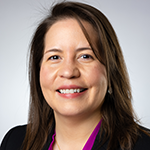For real-world data (RWD) to be useful at scale to drive business insights, it often needs to be deemed as ‘quality’ data. Transforming real-world data into a quality data asset often requires it to be organized, cleansed, harmonized and essentially structured in a format that makes it usable. While claims data is predominantly in a structured format, electronic health record (EHR) data contains both structured and unstructured data. In fact, it is estimated that 80 percent of this type of data is unstructured*, often in the form of free-text.
This notes-based data can include important clinical information, such as patient sentiment, genetic testing results, reasons for therapy choice, side effects of a medication, patient outcomes and more. Structuring this free-form data has the immense opportunity to provide deeper insights into many aspects of a patients’ disease journeys, adverse events identification, burden-of-disease tracking, patient identification for a clinical study and more. Artificial intelligence (AI) techniques, such as machine learning (ML) and natural language processing (NLP), paired with oversight from clinicians, are already being used to standardize EHR data in a meaningful way at scale.
Join this webinar to understand how unstructured EHR data is curated using clinician-informed AI to help make it meaningful for real-world research purposes.
Bonus: hear real case study examples across ophthalmology, urology and neurology.
*https://www.ncbi.nlm.nih.gov/pmc/articles/PMC6372467/
Speakers

Michael Mbagwu, MD, Medical Director, Verana Health
Michael Mbagwu, MD, attended The Ohio State University where he completed a Bachelor of Science in Biomedical Science and graduated Summa Cum Laude with Honors. He subsequently attended Northwestern University Feinberg School of Medicine, where he received a Doctor of Medicine and graduated Cum Laude in Scientia Experimentalis. He then completed a transitional/medical internship year at Presence Resurrection Medical Center before returning to Northwestern to complete his residency training in ophthalmology, where he served as Chief Resident. Dr. Mbagwu went on to complete an Ophthalmic Innovation Fellowship at the Byers Eye Institute/Stanford University School of Medicine and was a consultant at Verana Health. Dr. Mbagwu currently holds the academic rank of Adjunct Clinical Instructor of Ophthalmology at Stanford University School of Medicine and is a practicing physician with the Department of Veterans Affairs, Palo Alto Health Care System.

Aracelis Torres, PhD, SVP, Customer Solutions and Quantitative Sciences, Verana Health
Aracelis Torres, PhD, serves as the Vice President of Quantitative Sciences at Verana Health. She is an epidemiologist with over 10 years of academic and industry experience. Prior to joining Verana Health, Dr. Torres was a Director of Quantitative Sciences at Flatiron Health, where her work focused on translation of real-world oncology data to generate evidence. While at Flatiron Health, she led efforts related to the development of real-world endpoints, novel study designs and prospective evidence generation while also serving as the Quantitative Sciences lead for the organization’s broader research collaboration with the US Food and Drug Administration (FDA).
Dr. Torres is also currently an Adjunct Professor at Columbia University Graduate School of Arts and Sciences, where she teaches a course on large-scale data processing and analysis. She received a PhD in cancer epidemiology from Johns Hopkins Bloomberg School of Public Health, an MPH in chronic disease epidemiology from Yale University’s School of Public Health and a BS in molecular, cellular and developmental biology from Yale University.

Abel Kho, MD, Founding Director, Institute for Augmented Intelligence in Medicine
Dr. Kho is an Internist and Professor of Medicine and Preventive Medicine at the Northwestern University Feinberg School of Medicine where he is the Founding Director of both the Center for Health Information Partnerships (2015) and the Institute for Augmented Intelligence in Medicine (2020). His research focuses on developing regional electronic health record (EHR) enabled data sharing platforms for a range of health applications including high throughput phenotyping, cohort discovery, estimating population level disease burden and quality improvement.
He has served as principal investigator for over $80M in external funding, published over 100 manuscripts and mentored numerous students and trainees. He is an internationally recognized expert in privacy preserving record linkage, having published the first large-scale real-world application of this method for which he was assigned a patent, and co-founded a startup which was subsequently acquired by Datavant. He is an elected Fellow of the American College of Medical Informatics and recipient of the Donald AB Lindberg Award for Innovation in Informatics.
Who Should Attend?
- Health Economics and Outcomes Research (HEOR)
- Medical Affairs
- Data Science
- Biostatistics
- Real-World Evidence (RWE)
- Commercialization
- Commercial Operations
- Market Analytics & Forecasting
- Sales/Marketing
- Epidemiology & Drug Safety
- Clinical Development
What You Will Learn
Attendees will:
- Understand the value of electronic health record (EHR) data, specifically unstructured clinician notes, to inform research across the drug and device lifecycle for life sciences
- Learn how artificial intelligence (AI) techniques, such as machine learning (ML) and natural language processing (NLP), are applied to create quality, usable data for research from unstructured EHR data
- Realize the value of clinician oversight when using AI and how to scale manual abstraction
- Identify opportunities where unstructured EHR data may be most applicable to satisfy regulatory requirements, better understand patient journey, track treatments and outcomes, identify patients for a clinical trial and more
Xtalks Partner
Verana Health®
Verana Health® is a digital health company elevating quality in real-world data. Verana Health operates an exclusive real-world data network of more than 20,000 healthcare providers (HCPs) and about 90 million de-identified patients, stemming from its strategic data partnerships with the American Academy of Ophthalmology®, American Academy of Neurology®, and American Urological Association. Using its clinician-informed and artificial intelligence-enhanced VeraQ™ population health data engine, Verana Health transforms structured and unstructured healthcare data into curated, disease-specific data modules, Qdata™. Verana Health’s Qdata helps power analytics solutions and software-as-a-service products for real-world evidence generation, clinical trials enablement, HCP quality reporting, and medical registry data management. Verana Health’s quality data and insights help drive progress in medicine to enhance the quality of care and quality of life for patients. For more information, visit www.veranahealth.com.
You Must Login To Register for this Free Webinar
Already have an account? LOGIN HERE. If you don’t have an account you need to create a free account.
Create Account





